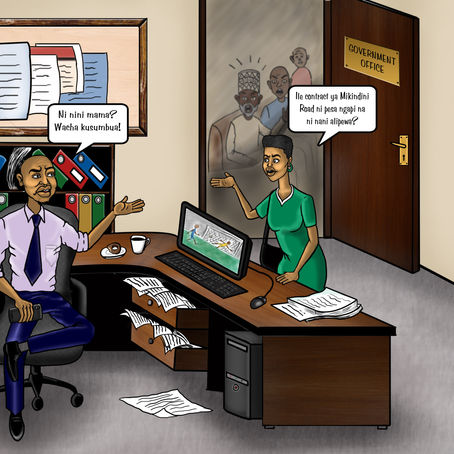Make quality education accessible to all
- opanyedward
- Jan 12, 2018
- 3 min read
Education is a great equalizer and I believe there are many people reading this post who can relate to the statement. In the past two weeks I have read newspaper stories of pupils who sat for their KCPE exams and passed well but cannot join high schools because their parents or guardians cannot afford the school fees even after he government subsidy.
I read a story of a young girl who traveled close to thirty kilometers to Butere Girls High School without a single cent in the pocket driven by passion to pursue secondary education with the hope that one day she will change the course and the history of her family and inspire someone. Many parents are poor and cannot afford to see their bright children through schools and the truth is that most sponsors and even leaders are becoming fatigued because of the high number of students who need support to enable them pursue higher learning.
It is important to note that the root cause of poverty is lack of education. Education allows us to know the world and change it so that we may all live with dignity, use our rights and participate actively in the building of a more equal and solidarity society. Because we cannot allow so many people to live in the darkness of illiteracy and we must believe that education is the most efficient tool to fight poverty.
"Education is not a way to escape poverty, it is a way to fight it"
Julius Nyerere
Kenya has ratified most international treaties that protect the right to education, which form part of the country’s laws. The Constitution of Kenya, in Article 53 (1) (b) state that every child has a right to free and compulsory basic education and Article 55 (a) the State shall take measures, including affirmative action programmes, to ensure that the youth access relevant education and training. Minorities and marginalized groups under Article 56 (b) have a right to be provided with special opportunities in the field of education. To give effect to the Constitution, the Basic Education Act (No 14 of 2013) has been passed into law to regulate the provision of basic education and adult basic education in the country.
The Children’s Act also acknowledges and protects every child’s right to education. Other education laws guarantee the implementation of the right to education. In addition, Kenya adopted various general and specific policies on education. The most recent are the second Medium Plan Term of Vision 2030 (2013) and the Policy Framework for Education and Training (2012). Kenya recognises that education is the key for empowering the most marginalised and vulnerable individuals in society and make efforts on an affirmative basis to enable these individuals to best exploit their life-chances alongside their other Kenyan peers through primary, secondary and tertiary education.

During the 2017 campaigns the two major political parties promised that education would be free from primary to secondary. The ruling coalition should live upto its promise to provide quality free primary and secondary education. The right education will be achieved through the provision of an inclusive and quality education that is accessible and relevant to all Kenyans. This vision is guided by the understanding that quality education and training contributes significantly to economic growth, better employment opportunities and contributes to expansion of income generating opportunities.
It is time we come up with policies to make quality education accessible to all Kenyans who want to learn.































Comments